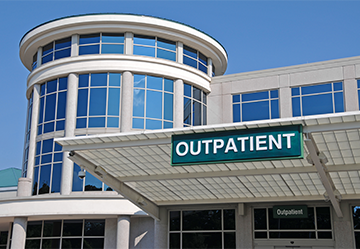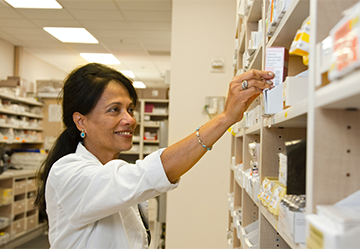Healthcare
Theatres Workstream: Improving Theatre Performance
Theatres Workstream: Improving Theatre Performance
The client was operating with a annual turnover of £430 million. To ensure their competitive advantage the client was required to deliver a savings plan totalling £125 million over a 5-year period. The client’s previous experience of savings plans was based around delivering short term cost reduction schemes Additionally, the trust had targeted within the theatre division financial savings of £1.4m within 2012/2013. Our organisation were invited prepare a transformational programme and to deliver a sustainable change that would deliver the required savings.


Results
- 15% increase in theatre session utilisation
- 60% of previously empty sessions now being filled
- 30% increase in daily theatre patient throughput (achieved within existing resource)
- £3m of additional annual revenue as a result of increased activity
- 20 theatre staff of all professions received lean overview, patient flow and waste identification training
- 20 theatre staff actively took part in patient flow mapping events to identify improvement areas and develop solutions
Approach
Staff engagement, visioning events were carried out across all theatre specialties to identify potential transformational and improvement projects. This process was supported by an initial data diagnostic of the patient pathway from preop assessment to patient recovery. The event highlighted four core issues:
- Fragmented approach to booking of patients for surgery with numerous routes for access. This contributed to a backlog of 556people waiting longer than 18 weeks from referral to treatment.
- Pre-Op assessment in the Trust was deemed “not fit for purpose”. The effects of this are Patients receiving duplicated assessments, Patients are having to return to subsequent appointments, Patient delay and waiting and Short notice pre-op.
- Inappropriate/Inadequate listing and variable and inadequate scheduling methods. This significantly impact on low throughput rates and utilisation, in turn this causes backlog which costs the trust approx £800k per annum in waiting list initiatives (T&O only).
- Demand capacity model highlighted a mismatch in both funded and actual capacity vs current demand. This also creates a weekly backlog of patients.
Solution
Scheduling: A bespoke theatre capacity demand model was designed to test possible strategic scenarios in theatres. Examples include altering consultant job plan to allow for more flexible working, adjusting capacity, changing the case mix and (where clinically appropriate) using day case capacity for main spine operations and creating throughput targets (consultant and case specific) in order to meet demand. The financial impact of such cases were also evaluated.
- A workout event with key stakeholders was held to prioritise the above scenarios based on complexity, and financial gain. Sub group leads were identified to lead the multiple work streams, they intern created project initiation documents.
- These sub groups had a weekly steering group to review actions.
- Progress of the project was reviewed through 30, 60, 90 day report outs to both COO and clinical sponsor.
- All Changes implemented were made were sustainable through a bespoke theatre dashboard and clear governance structures.
- A Standard KM&T programme management office (PMO) was established for the three projects which was validated and developed by project leads and clinical directorates.
- Pre-Op assessment one stop shop was created to enable the patient to receive pre-operative assessment on the day of decision to add to the waiting list. Additionally, the patient will receive a preferred choice on the day of their operation date. This was designed through a future state mapping event.
- A two week pilot was used to test the process, this was done in parrell with the previous process.




























